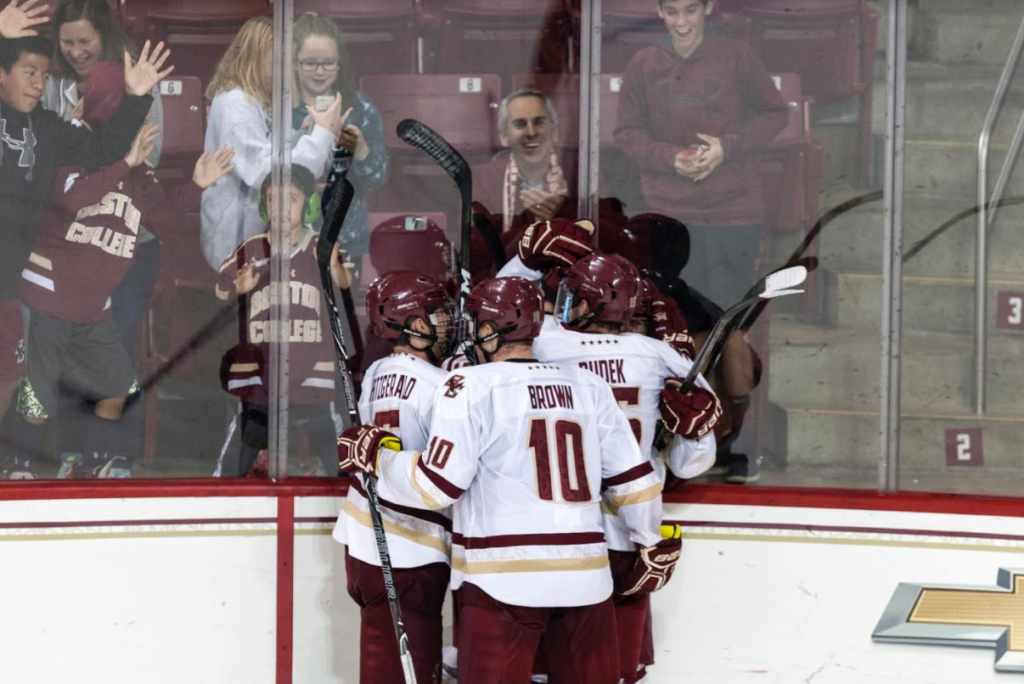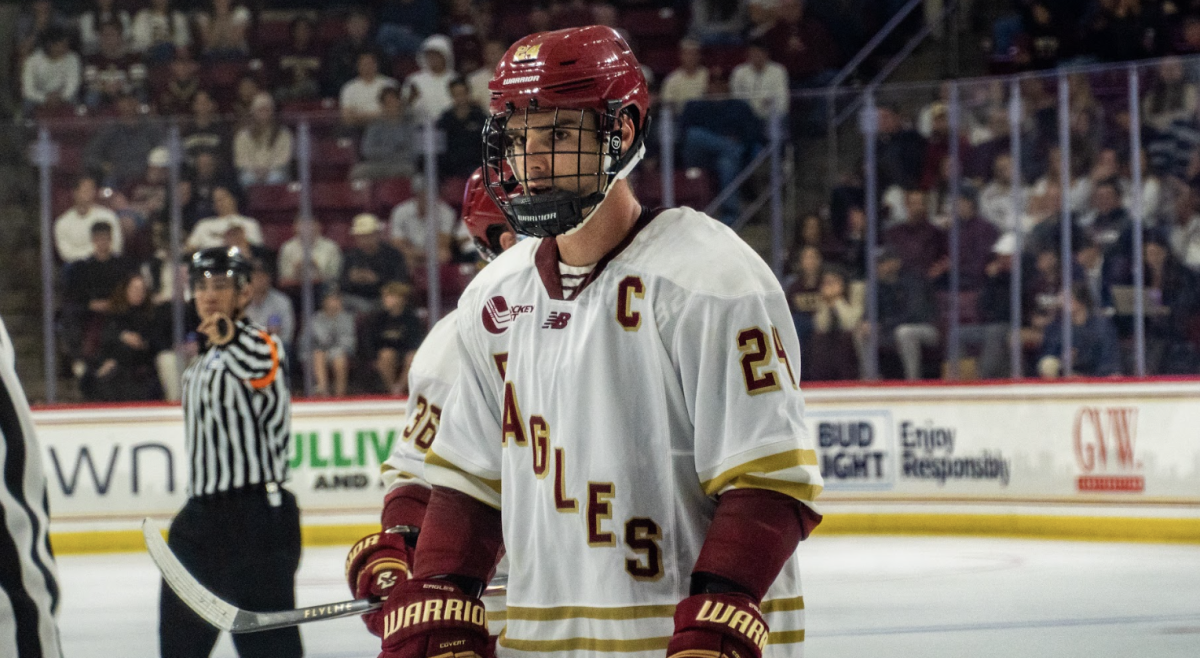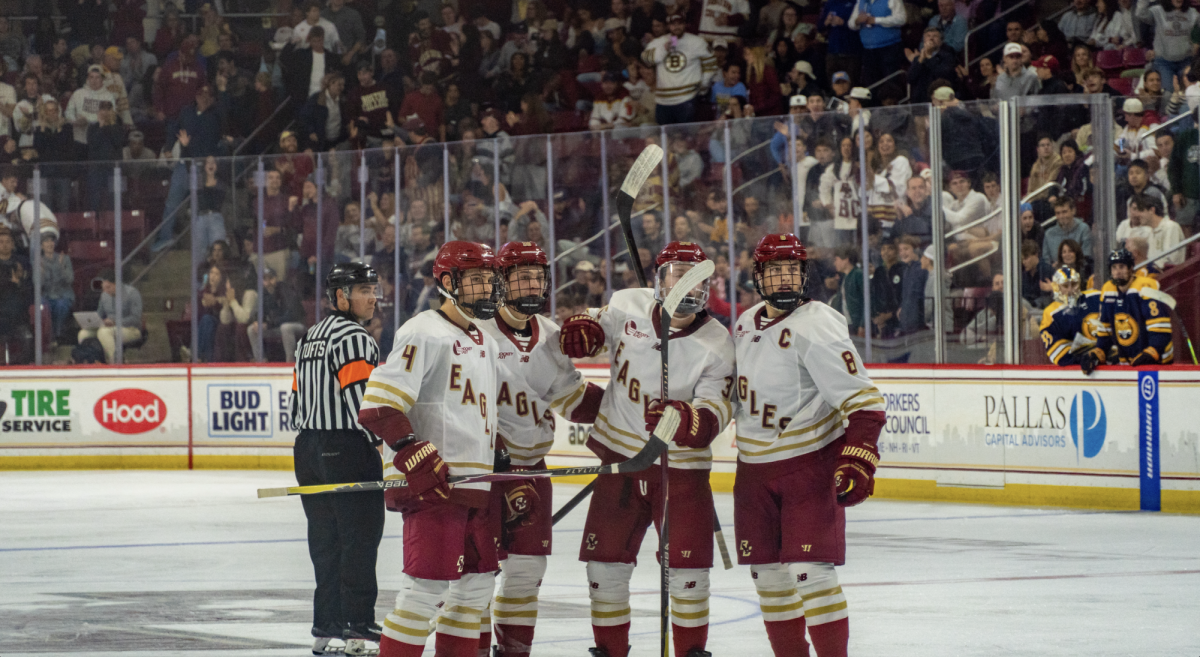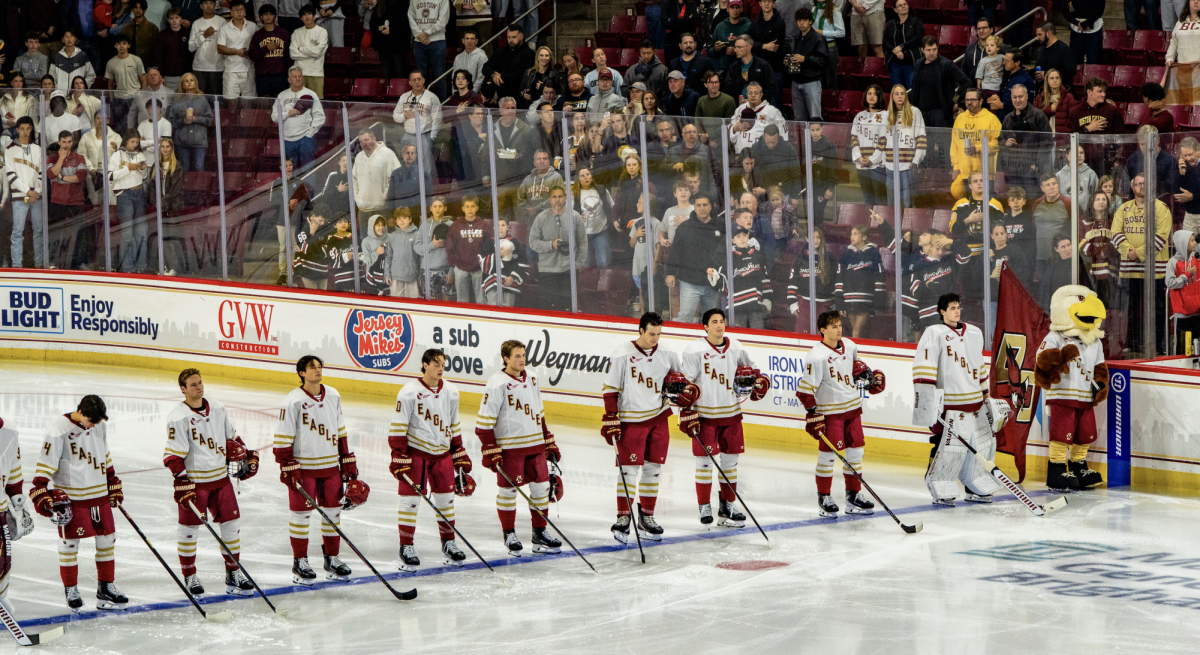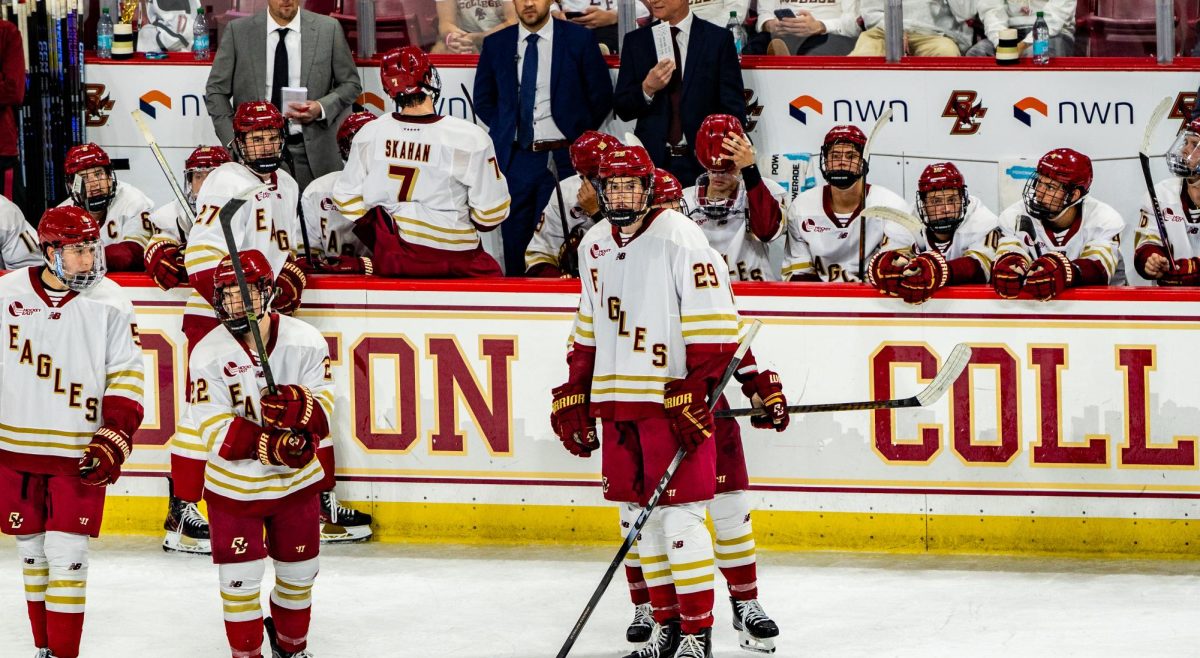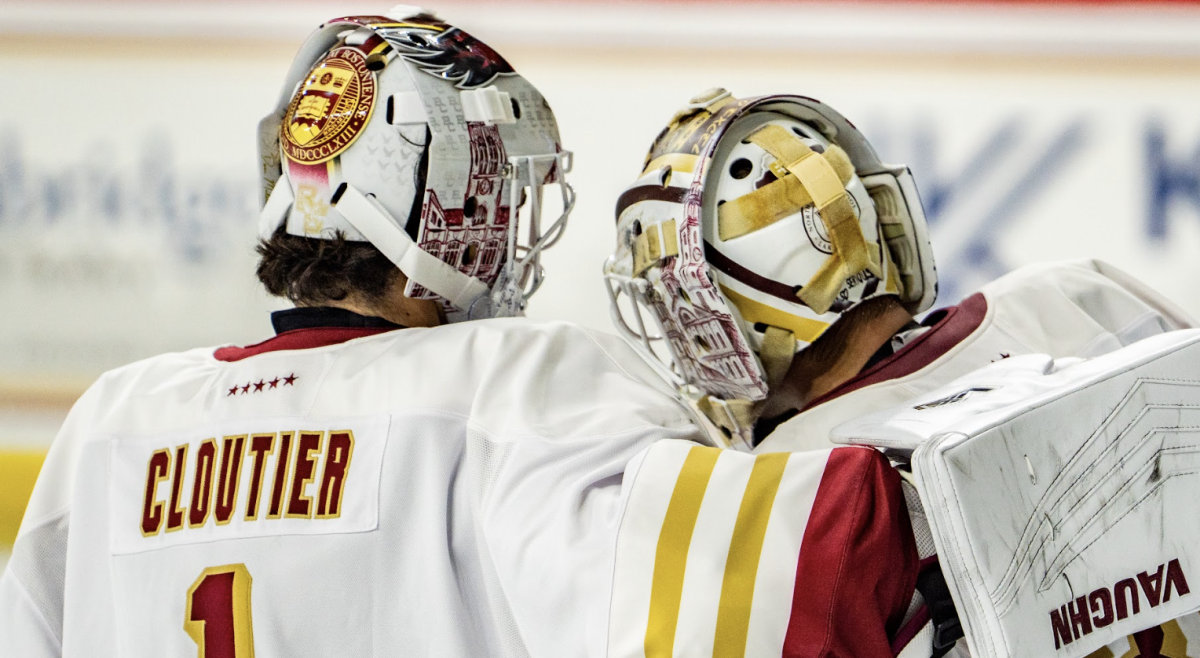You can tell a lot about a hockey team in its first game of the season.
How does it start out in the opening frame? Can it get momentum on the power play? Or hold opponents on the penalty kill—even worse, how long are they on the penalty kill? How will the team respond to pressure, especially when losing? And which side of the ice do fans have to worry more about?
To kickoff the 2017-18 season, Boston College men’s hockey gave an an answer to a lot of those questions—and an early look at the team’s new identity. The Eagles are going to be stalwarts in goal and beyond the blue line. And after losing their five top scorers from last season—four to graduation, one for an early trip to the bigs—they’re going to take a while to develop offensively.
But one thing’s for sure. They’re going to claw for 60 minutes, and sometimes more.
For the first time in 10 years, No. 13 BC opened the year at home, against No. 14 Quinnipiac. Goaltender Joseph Woll and the defensemen were sharp, and the offense—with a third-period goal by freshman Jacob Tortora, the first of his fledgling career—gave the Eagles just enough in a 1-1 tie.
“A good battle of goaltenders, and it required a late third-period goal by us,” head coach Jerry York said. “Good to see a freshman bury a goal.”
In the first period, BC’s special teams troubles prevented its offense from gaining any momentum, and getting on the board. Just 30 seconds into the game, the Eagles got a chance on the power play, a section of the game with which they greatly struggled last season. Neither unit got a shot off throughout during the two-minute span.
For much of the first, the Eagles spent time with a man down. A team that averaged 5.6 penalties per game last year, BC allowed three power-play chances for Quinnipiac in the opening frame. Though not stellar, the Eagles’ were 22nd last year on the kill, and showed off why their now-veteran defensive corps keep pucks away from Woll. Christopher Brown and Casey Fitzgerald, both captains this season, showed off their skills in particular, with good stick work that kept the puck in the QU zone. Quinnipiac head coach Rand Pecknold expressed his frustration with BC’s ability to hold the Bobcats at bay.
“We struggled on [the penalty kill],” Pecknold said. “Just not cohesive, and lost a lot of battles. You’ve got to have good battles, and BC beat us there.”
The Eagles got their first real scoring chance when, Quinnipiac defenseman and Boston University transfer Brandon Fortunato was forced to hold a Zach Walker shot in the crease that put goaltender Andrew Shortridge out of position. But David Cotton couldn’t convert on the penalty-shot opportunity, with a slow-moving backhand that got stuffed.
In the second, Quinnipiac kept the pressure on Woll, knocking two off the post and forcing the goaltender into the splits. Alex Whelan finally broke through for Quinnipiac with under five minutes to go in the second. He rocketed a screamer past Woll from the top of the left circle that appeared to have been screened by Michael Kim, putting the Bobcats up 1-0.
On the other end, BC created chances, but couldn’t deliver. Several times throughout the latter two frames, Brown and Walker combined for solid give-and-go passes. But most either went wide before they got to Shortridge, or were deflected above his head.
The only one to break through was Tortora, who showed off his speed throughout the game. The alum of the United States National Team Development Program continuously put the pressure on Quinnipiac’s defense. And, with a power play thanks to a Quinnipiac too many men on the ice penalty, Tortora delivered. He ate up a rebound from a Fitzgerald shot, slotting it high over Shortridge for the equalizer.
“I think he’s got qualities that’ll really show as the season goes along—his skating, his good hockey sense, and he’s a goal scorer, he wants to score goals,” York said of Tortora. “He’s a good addition to our team.”
By the overtime frame, Woll took over. Twice, Quinnipiac tested him with slapshots, and he handily robbed each with the glove. Connor Moore also made a game-saving play by diving in front of a shot.
And after losing all of those scoring options, the Eagles were only picked to finish fourth in Hockey East, lower than their typical spot at No. 1 or 2. They’re also considered just a bubble team for the NCAA Tournament, which they missed for only the third time in the last 15 years. For York, that lack of confidence, rare in his time, sticks with him, and the team.
““I really appreciated, from my vantage point, the grit of this team,” York said. “You start with that good, solid culture, and I think it’s going to be year that’s going to be a little bit better than some people forecasted for us.”
The Eagles showed on Friday why—with a lot of defense, some grit, just enough offense—they can get back to the show. So now the question is: Where, and how far, can they go from here?
Featured Image by Julia Hopkins / Heights Editor

